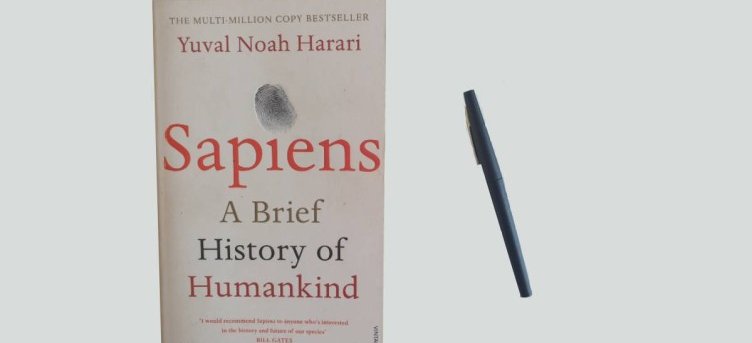Personal note
Why is Harari's “Sapiens” a must-read book to fight our environmental crises, starting with climate change?

Reading such a masterpiece requires some thought processing afterwards ?. Doing so, I tried to connect it with our challenges in the Digital Sustainability field. So, here are my 4 takeaways from Hariri’s book ? from the point of view of a responsible technologist ?:
1. What is “Progress”? ?
? We take “Progress” for granted while it is still in its infant phase. Scientific revolution, which started 5 centuries ago, is a blink of an eye compared to Humankind History, and the industrial revolution is half of it. On top of it, we have a tendency to mix up genetic success with happiness which is an under-studied field in humanities.
? We take progress for granted because no living sapiens has ever met any sapiens who have not known otherwise, but it strikes me how recent the current notion of progress is indeed. And how the success metrics for our species are unrelated to its well-being or happiness. This disconnection resonated a lot with the perpetual quest of impact companies to find better metrics to assess success than just the sole financial bottom line.
2. The industrial revolution is hooked on fossil fuels! ?️
? Since its very beginning, the industrial revolution has been fueled by “an ocean of energy” provided by the fossil fuel bonanza and by raw materials.
? I do not share Harari’s optimism about all the energy needed in the world which could be provided by the sun, but his concern about raw materials depletion are spot on. Eventually, we need to acknowledge that our current way of producing and consuming “cradle to grave” is rooted in the industrial system. Hence switching to a sustainable “cradle to cradle” system implies rethinking our industries and the IT sector is no exception.
3. Is Sapiens a virus? ?
? Sapiens has always been deadly to its environment starting with the extinction of Australian megafauna 45,000 years ago. The scale has changed with industrial capacities, but not the root causes.
? That was a really depressing moment. Are we genetically programmed to harm our environment? Like a virus out of control whose domination may lead to its own extinction? I got some hope reading Harari’s point that “Sapiens never thought as a species”. The ongoing long-trend “unification of humankind” might create a unique opportunity to start thinking collectively as a species, and embrace our entire ecosystem (planet Earth) with it. In my humble opinion, this is the true challenge of the 21st century. And the digital sector has a crucial role to play, thanks to the growing importance of open-source code and shared digital commons at a global level.
4. The need for new myths ?
? Hariri’s states that Sapiens managed to overcome all other human species thanks to our inter-subjective reality which started with the cognitive revolution. We create myths which start to have real impacts, like enabling massive crowds of Sapiens to gather together and to dominate some Neandertal tribes.
? The more I invest time and energy in Sustainability the more I realize how important the narrative is. Maybe Aurélien Barraud is right indeed when he states that we need poets not engineers to lead our path toward a better world. The Far west myth of infinite resources fueling infinite growth, our use of resource-intensive goods as social markers, etc. all need to be replaced by new inter-subjective realities. I think I’m going to pay more attention now to studies and workshops that will help me to challenge my own take on things. I still feel very much stuck in an old-way of thinking … Maybe this is what mid-life crisis is about ?
Thanks a lot Yuval Noah Harari for letting me take a much needed sidestep and thank you Gregor Woitier for your wise advice ?
What are your takeaways from Sapiens? Looking forward to reading them in the comments!
Join +2000 responsible readers

Green IO newsletter
Once a month, carefully curated news on digital sustainability and Green IO contents delivered in your mailbox